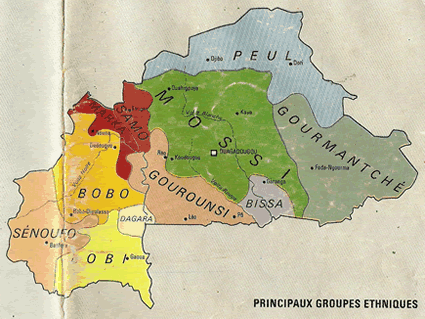The Samo live in northwestern Burkina Faso, in a dry, arid area that receives minimal rainfall. Four different dialects with limited intelligibility makes ministry and translation in the mother tongue difficult. Approximately 75% of the Samo are bilingual in Jula, the trade language of western Burkina Faso. Many missionaries and churches communicate in Jula in order to unify speakers of different Samo dialects. The Samo place a high priority on education. Adults are eager to learn to read, although a shortage of time and funds prevents many from attending literacy classes. The adult literacy rate remains an extremely low 4%. Each village has its own school, and at least 60% of young people currently receive a primary education. Teachers and materials are scarce, and there are often over 100 students in a single class.
Young people have difficulty advancing in the workforce, and frequently resort to subsistence farming in order to support their families. The Samo culture is a mixture of traditional and modern influences. Women wear traditional African cloths, while men and children dress in Western style clothing. Village chiefs settle small disputes, but national government officials preside over larger conflicts. Modernization is seen in the increasing use of motorcycles and bush taxis, and some villages even have solar-powered pumps that provide water year-round.
Christians long for workers who are willing to live among them, teach literacy, and teach the scriptures to them in the Samo's mother tongue.
Scripture Prayers for the Samo, Southern in Burkina Faso.
| Profile Source: Anonymous |











